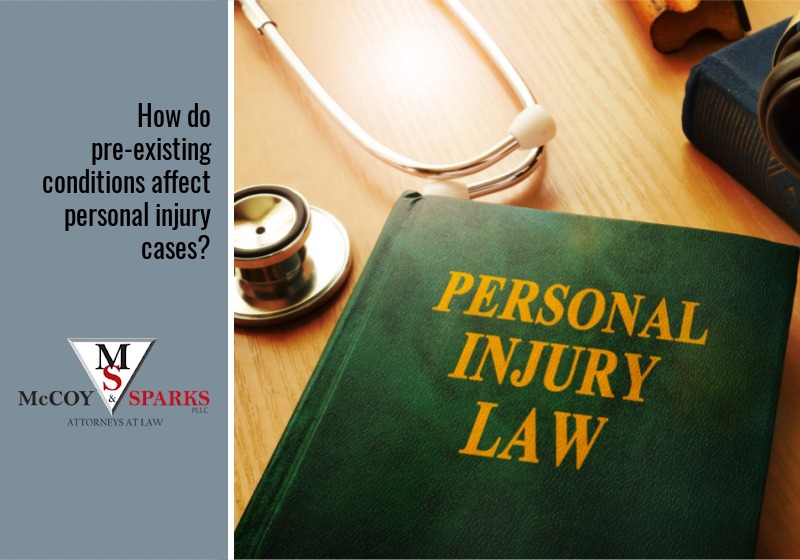
If you have exacerbated a pre-existing condition in a slip and fall accident or car accident, you may feel that you will have no chance of being compensated for your injuries, but that simply isn’t true.
It is true that your case may be more complicated, but you do have right (and the law) on your side. That being said, an experienced personal injury lawyer will have the necessary skills to joust with any insurance company standing in your way.
Insurance companies
Despite what we may wish to believe, insurance companies do not exist for the purpose of helping people; their primary reason for existing is to make money, just like all other businesses. In order to make a profit, they will often deny claims or downplay claims with flimsy excuses.
Simply put, insurance companies will always try to pay out the least amount of money that they can get away with, and this is one reason it is wise to work with a trusted personal injury lawyer who can negotiate for you.
Insurance companies may claim that your injuries are due to your pre-existing condition. And it may be true that you were more apt to be seriously hurt than someone without the preexisting condition, but that condition isn’t the cause of the problem you have now — the fall or accident is the cause.
Your rights
After being injured, your pre-existing condition may be exacerbated or made worse.
Never lie about your pre-existing condition. It will be discovered through your medical records, and your lawyer can’t help you if you are not truthful and transparent.
However, the doctor who has treated you in the past may be a valuable witness in proving to an insurance company, judge, or jury that your condition was aggravated by the accident.
The law that explains your rights in this is called the eggshell-plaintiff doctrine. The eggshell plaintiff rule basically says that whoever is found liable (for instance, a grocery store in a slip and fall case) is responsible for all of the injuries that you received in the accident. This is not affected in any way by any previous conditions you may have had that made you more susceptible to injury. As long as you can prove that your injuries were made worse by the accident, you may still be entitled to compensation.
Common types of pre-existing injuries
- Back pain: For people who already suffer from lower back pain, a car accident (or fall) can put additional strain by causing swelling in the lower back or leg region. This can lead to sciatica, a condition that causes pain, numbness, or tingling in the lower back and down one leg.
- Herniated disc or discs: This occurs when the soft nucleus of one or more of the discs in the spine pokes through a tear in the exterior (annulus) of the disc. You have had mild discomfort from this condition before your accident, but now it is excruciatingly painful.
- Degenerative disc disease: According to the NIH, fully 40% of all people in the United States have degenerative disc disease. Does that mean that none of those people can be compensated for back injuries in a subsequent accident? Absolutely not.
- Neck pain: You may have had whiplash in a previous accident. A NIH report estimates that “a previous whiplash injury doubles the risk of developing more severe symptoms after a second injury.”
- Bones that have been previously broken: Sometimes, when bones are fractured, they can cause nerves to be bruised or crushed. These types of injuries can take months or years to heal completely, and some never completely heal. Re-injuring the same limb could exacerbate this pre-existing problem.
How can you prove your case?
Your attorney will be able to show that your medical condition is worse than it was before your fall or accident. Your attorney will:
- Gather all medical records of your pre-existing condition.
- Compare these records to current records (post injury) as clear evidence of what the new accident caused, changed, or aggravated.
- Use testimony from medical experts to illustrate their points.
- Ask medical experts to contrast MRIs or X-Rays taken years or months apart.
- Ask medical experts to contrast your degree of pain, disability, and necessary treatment from pre and post-accident.
- Discuss the exact parts of the body affected by the old and the new injuries.
- Highlight the amount of time between your old and new injuries.
- Demonstrate the extent of your recovery after your pre-existing injury.
- Calculate your financial losses, including medical bills, prescription drugs, physical therapy, lost wages, and projected future costs.
- Obtain a fair settlement or take the case to trial to win you the compensation you need and are entitled to.
Ultimately, your attorney will show how the new injury has caused the old injury to either reoccur or to become worse.
Even without pre-existing conditions, it is difficult to prove pain and suffering, but this is where the experience and expertise of your personal injury lawyer come into play. Having a pre-existing condition does not mean you are disqualified from compensation after a personal injury caused by the negligence of another person, company, or product. If you or a loved one has been injured in Kentucky in a car accident, pedestrian accident, slip and fall accident, or by a poorly manufactured or designed product, you have the right to seek compensation.
Contact the trusted attorneys at McCoy & Sparks for a risk-free consultation to discuss your injury and how to address your pre-existing conditions to get you the damages you deserve.

